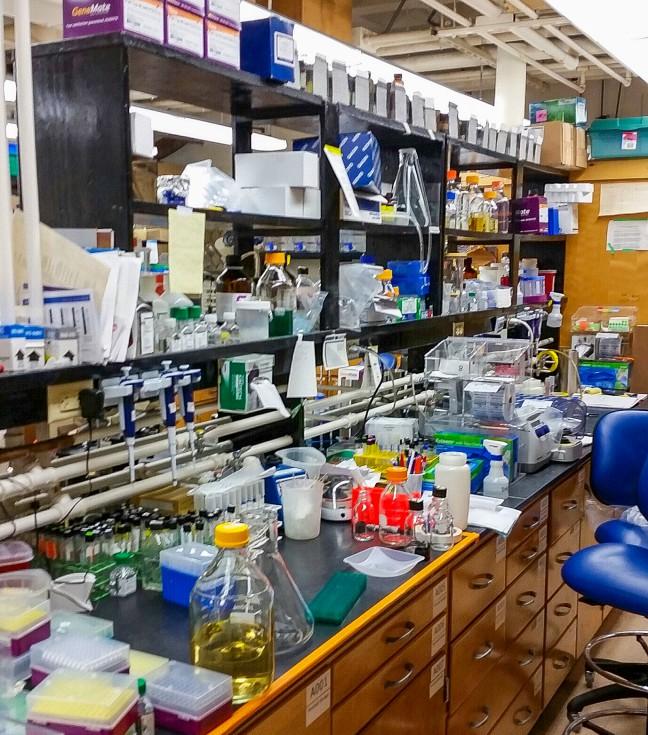Recently, in discussing the University of Wisconsin System’s request for $95.2 million more in state funding, Wisconsin Assembly Speaker and former UW System regent Robin Vos, R-Rochester, commented on the research being done at the University of Wisconsin. He said UW should have “research done in a way that focuses on growing our economy, not on, you know, ancient mating habits or whatever.” Although this comment could be dismissed as a malicious statement against UW, it is important that we discuss why this sentiment is false and potentially detrimental.
First, the state plays a small role in funding UW research and the role has been shrinking. The total research expenditures during the 2012-2013 year were $848.9 million. However, of this nearly billion dollar figure, only around 9 percent came from state taxes. The other 91 percent comes from federal grants and contracts ($484.3 million), gifts and endowments ($244.2 million) and revolving funds ($48.2 million). If UW was to direct more research toward economic growth, increasing state funds could certainly help it.
Second, UW has a good grasp on this idea of academic research. Among public institutions, it is ranked in the top five for research expenditures. In 2014, the Journal of Public Affairs Education ranked UW fourth in the world in public administration research. UW was ranked 25th in the world by The Center for World University Rankings. This organization rates universities based on the prestige of the faculty and quality of the research. Although Vos may have experience in academic research, I think it is safe to say that these organizations know what they are doing.
Lastly, the economic impact that UW and its research has on the economy is already significant. A 2011 economic impact study indicated UW’s annual total impact on the Wisconsin economy is $12.4 billion. The figure includes UW operations, spending by faculty and staff, research/development, jobs and tax revenue. Research alone brought $2 billion to the economy.
The figures indicate that UW is a successful research institute, but how do the specific research projects impact Wisconsin? Several research projects at UW are labeled “basic research.” Basic research is defined as, “systematic study directed toward fuller knowledge or understanding of the fundamental aspects of phenomena and of observable facts without specific applications towards processes or products in mind.” For instance, Hans Schneider, a research mathematician and former chairman of the Mathematics Department here at UW, dedicated himself to research in linear algebra, which was a branch of mathematics known as unworthy and old-fashioned. However, Schneider’s research became the basics for the algorithm that helped developed Google. (Yes, that Google.)
Furthermore, in 1957, UW distributed a survey to more than 10,000 high school graduates. The Wisconsin Longitudinal Study (WLS) has become one of the longest sociological investigations ever conducted. The study follows the participants until present day, studying everything about them. This includes their career, education, family circumstances and retirement. A 2007 article by Madeline Fisher indicates that the study “has given social scientists unprecedented insight into how a lifetime of experiences, especially those during youth and adolescence influence quality of life as people age. WLS findings have appeared in more than 400 books, journal articles and other scholarly publications.” So at the time of conception, research may not be seen as economically prosperous or worthwhile but with time, it proves otherwise. We should not fall prey to short-sightedness.
There are reasons to criticize UW. There are probably even more reasons to criticize UW’s research practices. However, any call for UW to focus its research on growing the economy would be to claim that it is not already doing so both directly and indirectly. It clearly is. If we are truly worried about the economy in regard to the output of the university, we should be more concerned about the general decrease in state funding since 1976. If we want to continue the annual $12.4 billion impact, the best solution wouldn’t be decreasing research funds. It would be increasing them for all levels of education.
Mackenzie Krumme ([email protected]) is a junior majoring in international studies and intending to major in journalism.














